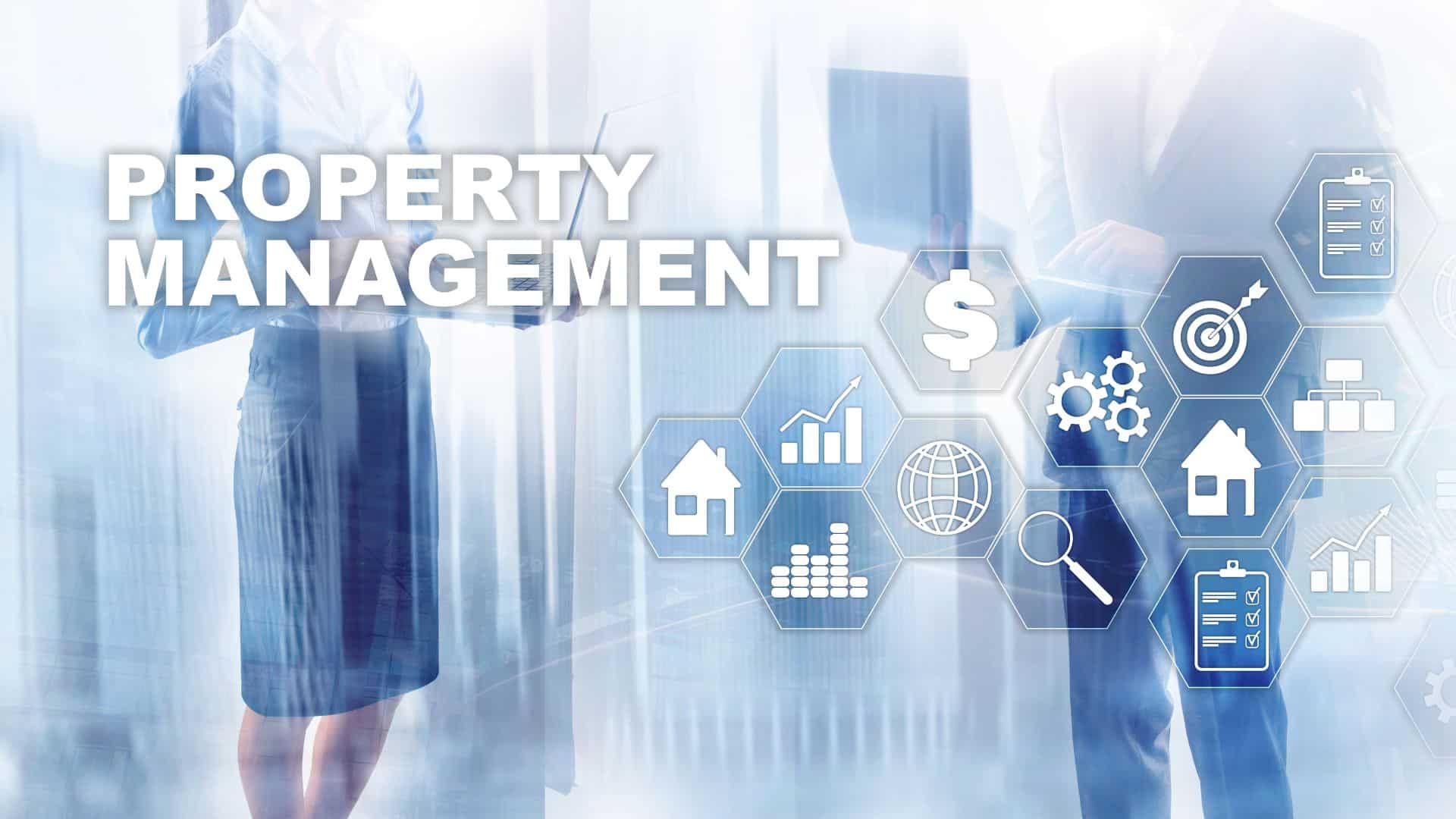With the real estate market constantly evolving, property managers and investors need to stay ahead by using smart techniques to maximize their profits. But what does ROI mean in the context of property management, and how can you improve it?
This blog post will cover it all.
Understanding ROI in Property Management
ROI stands for Return on Investment. It’s a simple yet powerful metric used to evaluate the efficiency of an investment. In the realm of property management, ROI is calculated by dividing the net profit from your property by the total investment cost and then multiplying by 100 to get a percentage. The higher the percentage, the better the return on your investment.
So, how does ROI specifically apply to property management?
It’s all about the balance between the income generated by your properties and the costs associated with maintaining them. For instance, if you’re spending a lot on maintenance but not seeing a corresponding increase in rental income, your ROI will suffer. On the other hand, if you can keep costs low while maintaining high occupancy rates and rent levels, your ROI will improve.
Several key factors influence ROI Property Management. These include the location of your properties, the quality of your tenants, the efficiency of your property maintenance, and the effectiveness of your property management practices. By focusing on these areas, you can maximize your ROI and ensure your investments are as profitable as possible.

Smarter Pest Control, Fewer Headaches.
Assessing Current ROI
Before you can improve your ROI, you need to know where you stand. Assessing your current ROI involves calculating the returns from your property investments and understanding what drives these returns. This is where methods for calculating ROI come in handy.
To calculate your current ROI, start by determining your net profit. This is the income you receive from your property (such as rent) minus any expenses (like maintenance, property taxes, and management fees). Then, divide this net profit by the total amount you invested in the property. Multiply the result by 100 to get your ROI percentage. This calculation gives you a clear picture of how well your investment is performing.
There are several tools and software available that can help you calculate and monitor your ROI. These tools often include features like expense tracking, income reports, and performance analytics, making it easier to keep tabs on your investments. Utilizing such tools can save you time and provide more accurate insights into your property’s financial performance.
However, it’s essential to be aware of common pitfalls in ROI assessment. One major pitfall is not accounting for all expenses. For example, if you forget to include property management fees or unexpected repair costs, your ROI calculation won’t be accurate. Another common mistake is not adjusting for vacancies. Properties don’t generate income when they’re unoccupied, so it’s crucial to factor in periods of vacancy when calculating your ROI. By being thorough and precise in your calculations, you can avoid these pitfalls and get a true sense of your property’s performance.
Techniques to Boost ROI
Now that you understand your current ROI, it’s time to implement strategies to improve it. One of the most effective ways to boost your ROI is through efficient property maintenance. Regular inspections and preventative measures can save you a lot of money in the long run. By identifying and addressing issues early, you can prevent minor problems from becoming major expenses. For example, fixing a small leak before it turns into a major water damage issue can save you significant repair costs.
Additionally, quick response to repairs is crucial. Tenants appreciate a property manager who addresses their concerns promptly, and this can lead to higher tenant satisfaction and retention rates. Happy tenants are more likely to stay longer and take better care of the property, which can reduce turnover costs and improve your ROI.
Another key technique is making cost-effective upgrades to your properties. Affordable renovations can add significant value to your properties without breaking the bank. Simple improvements like fresh paint, modern fixtures, and energy-efficient appliances can make your properties more attractive to potential tenants. Energy-efficient upgrades, such as installing LED lighting or energy-efficient windows, can also reduce utility costs, making your properties more appealing and lowering your operating expenses.
Effective tenant management is another crucial aspect of boosting your ROI. By focusing on tenant retention, you can reduce turnover rates and the associated costs of finding new tenants. This involves creating a positive living experience for your tenants, addressing their concerns promptly, and building good relationships. Additionally, screening and selecting quality tenants can prevent issues such as late payments or property damage, further protecting your investment.
Technology and Automation
In today’s world, technology is a game-changer for property managers. It can streamline many tasks, making your job easier and your properties more profitable. One of the most valuable tools at your disposal is property management software. These programs can handle everything from tracking rent payments to scheduling maintenance, saving you time and reducing the risk of human error.
Property management software offers several key benefits. First, it helps you stay organized by keeping all your property information in one place. You can easily access tenant records, lease agreements, and maintenance logs. This centralization makes it simple to manage multiple properties without getting overwhelmed.
Another major benefit is automation. Many property management tasks are repetitive and time-consuming, like sending rent reminders or processing payments. Automation tools can handle these tasks for you, freeing up your time for more important things. For example, automated rent reminders can help ensure tenants pay on time, reducing late payments and improving your cash flow.
Additionally, technology can improve communication with your tenants. Many property management software platforms include tenant portals where residents can pay rent, submit maintenance requests, and communicate with property managers. This convenience can lead to higher tenant satisfaction and retention.
Some software also includes advanced features like financial reporting and analytics. These tools can provide insights into your property’s performance, helping you make data-driven decisions to improve your ROI. By leveraging technology and automation, you can operate more efficiently, reduce costs, and ultimately boost your ROI.
Marketing Strategies
Effective marketing is crucial for attracting and retaining tenants. Both online and offline marketing techniques play a role in keeping your properties fully occupied. One of the most powerful tools in your marketing arsenal is a strong online presence. Today, most people start their search for a new home online, so it’s essential to have a professional, easy-to-navigate website for your properties.
Your website should showcase your properties with high-quality photos, detailed descriptions, and virtual tours if possible. Highlight the features that make your properties unique, such as updated kitchens, pet-friendly policies, or convenient locations. Make sure your contact information is easy to find so potential tenants can reach out with questions or to schedule a viewing.
Social media is another important tool. Platforms like Facebook, Instagram, and Twitter allow you to reach a wide audience and engage with potential tenants. Regularly posting updates, photos, and promotions can keep your properties top-of-mind. Consider running targeted ads on social media to reach people who are actively looking for a new place to live.
Don’t forget about offline marketing techniques. Traditional methods like flyers, open houses, and local advertisements can still be effective, especially in smaller communities. Partnering with local businesses to cross-promote can also increase your reach. For example, you might leave flyers at a popular coffee shop or sponsor a local event.
Word of mouth is another powerful tool. Happy tenants are more likely to recommend your properties to friends and family. Encourage satisfied tenants to leave reviews on your website or social media pages. Positive reviews can boost your property reputation and attract more tenants. By combining online and offline marketing strategies, you can keep your properties fully occupied and improve your ROI.
Financial Management
Good financial management is key to maximizing your ROI. It starts with careful budgeting and expense tracking. Creating a detailed budget helps you plan for regular expenses like maintenance, utilities, and property management fees. It also allows you to set aside funds for unexpected costs, such as emergency repairs.
Tracking your expenses is equally important. By keeping a close eye on where your money is going, you can identify areas where you might be overspending and make adjustments. Many property management software programs include expense tracking features, making it easy to monitor your finances.
Reducing operational costs is another way to improve your ROI. Look for ways to save money without sacrificing quality. For example, you might negotiate better rates with service providers or switch to more energy-efficient appliances. Small savings can add up over time, boosting your overall profitability.
Managing cash flow effectively is crucial. Cash flow is the money coming in and going out of your business. Positive cash flow means you have more money coming in than going out, which is essential for covering expenses and investing in your properties. Regularly review your cash flow to ensure you have enough funds to meet your obligations and make necessary improvements.
Consider working with a financial advisor or accountant who specializes in real estate. They can provide valuable insights and help you make informed decisions about your investments. By focusing on strong financial management, you can keep your properties profitable and improve your ROI.
Legal and Compliance Considerations
Staying up-to-date with property laws and regulations is essential for any property manager. Legal issues can be complex and vary widely depending on your location, so it’s important to be well-informed and proactive about compliance.
One of the most critical areas of compliance is understanding landlord-tenant laws. These laws govern everything from lease agreements to eviction procedures. Familiarize yourself with the specific regulations in your area to ensure you’re operating within the law. Non-compliance can result in fines, legal disputes, and damage to your reputation.
Fair housing laws are another important consideration. These laws prohibit discrimination based on race, color, religion, sex, national origin, familial status, or disability. Make sure your marketing practices, tenant screening processes, and lease agreements comply with these laws to avoid legal issues and promote equal housing opportunities.
Health and safety regulations are also crucial. Regular inspections and maintenance are necessary to ensure your properties meet safety standards. This includes things like fire safety, electrical systems, and structural integrity. Neglecting these responsibilities can lead to costly repairs and legal liabilities.
Environmental regulations are becoming increasingly important as well. These can include requirements for energy efficiency, waste management, and the use of environmentally friendly materials. Staying compliant with these regulations not only avoids penalties but can also make your properties more attractive to environmentally conscious tenants.
Consider using legal resources and consulting with a real estate attorney to stay informed about changes in the law and ensure your practices are compliant. There are also many online resources and training programs available that can help you stay up-to-date with legal requirements.
Building a Strong Team
A strong team is the backbone of successful property management. Hiring skilled property managers and staff can make all the difference in how efficiently and effectively your properties are managed. Start by looking for candidates with experience in property management and a track record of success. Good communication skills and a customer-focused attitude are also essential.
Training and development programs are crucial for keeping your team up-to-date with the latest property management techniques and technologies. Regular training sessions can help your staff stay knowledgeable about new software, legal updates, and best practices in tenant relations and property maintenance.
Good communication within your team is key. Regular meetings and clear communication channels can help everyone stay on the same page and work together smoothly. Encourage an open-door policy where team members feel comfortable sharing ideas and concerns.
Teamwork is also vital. A well-coordinated team can handle the various aspects of property management more efficiently, from handling tenant issues to managing maintenance requests. By fostering a team-oriented environment, you can ensure that your properties are managed effectively and your tenants are happy.
Monitoring and Adjusting Strategies
Regular performance reviews are essential for keeping your property management strategies on track. By assessing your performance periodically, you can identify areas for improvement and make necessary adjustments. This might involve reviewing financial reports, tenant feedback, and maintenance records.
Adapting strategies based on market trends is also important. The real estate market is constantly changing, and staying flexible can help you stay ahead. For example, if you notice a trend towards more energy-efficient homes, you might consider investing in energy-saving upgrades for your properties.
Continuous improvement should be your goal. Property management is an ongoing process, and there is always room for improvement. By regularly reviewing your strategies and making adjustments, you can keep your properties profitable and your tenants satisfied.
Boosting your ROI with smart property management techniques is about using the right tools and strategies to maximize your profits. From understanding and calculating your ROI to implementing efficient maintenance, leveraging technology, and staying compliant with laws, every step counts.
Building a strong team and regularly reviewing and adjusting your strategies can help you stay ahead in the competitive real estate market.
Remember, happy tenants lead to higher retention rates and better returns on your investment.







